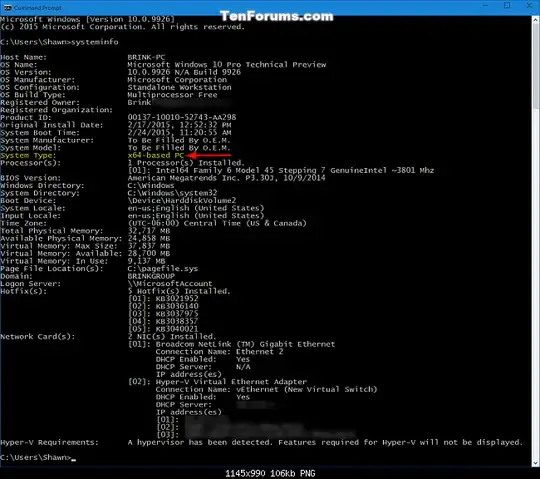I'm working with InstallAnywhere, an old program for creating installers. I would like to install a particular file, only in case of Windows XP and Windows Vista.
Due to InstallAnywhere limitations, this is not possible. I can only decide to delete the file once it has already been installed, based on a rule.
Within that rule, I can check for the platform on which I'm running, which gives me the possibility to check for Windows XP, Windows Vista, Windows 7, etc. but not for Windows 10. I can't say "Perform this action when the system is not XP or Vista", so I need to say "Perform this action on all those platforms, which are not XP or Vista".
However, I can launch command-line commands and catch the result, so here's my question: is there a command which I can use for determining if I'm working on a Windows 10 system?
